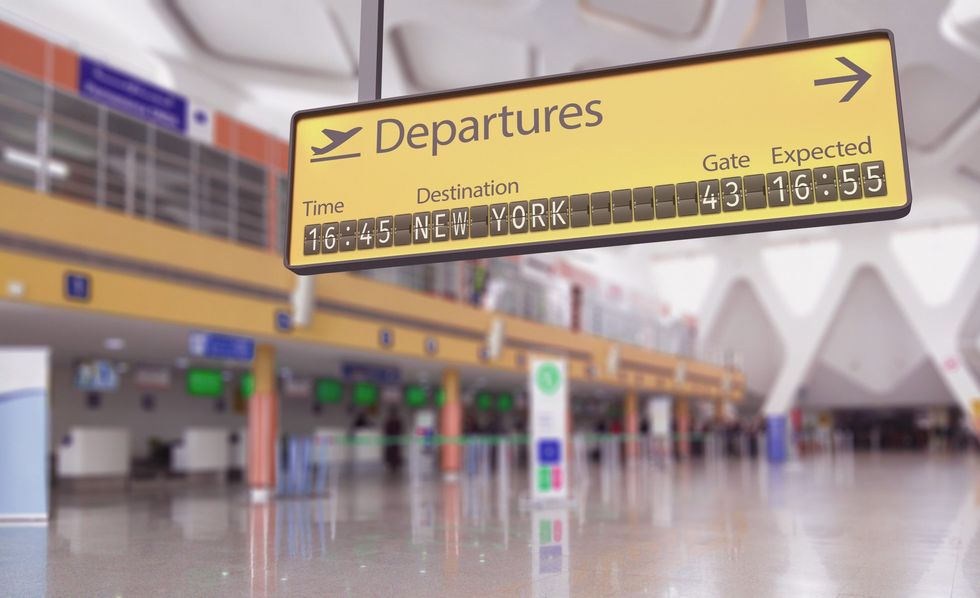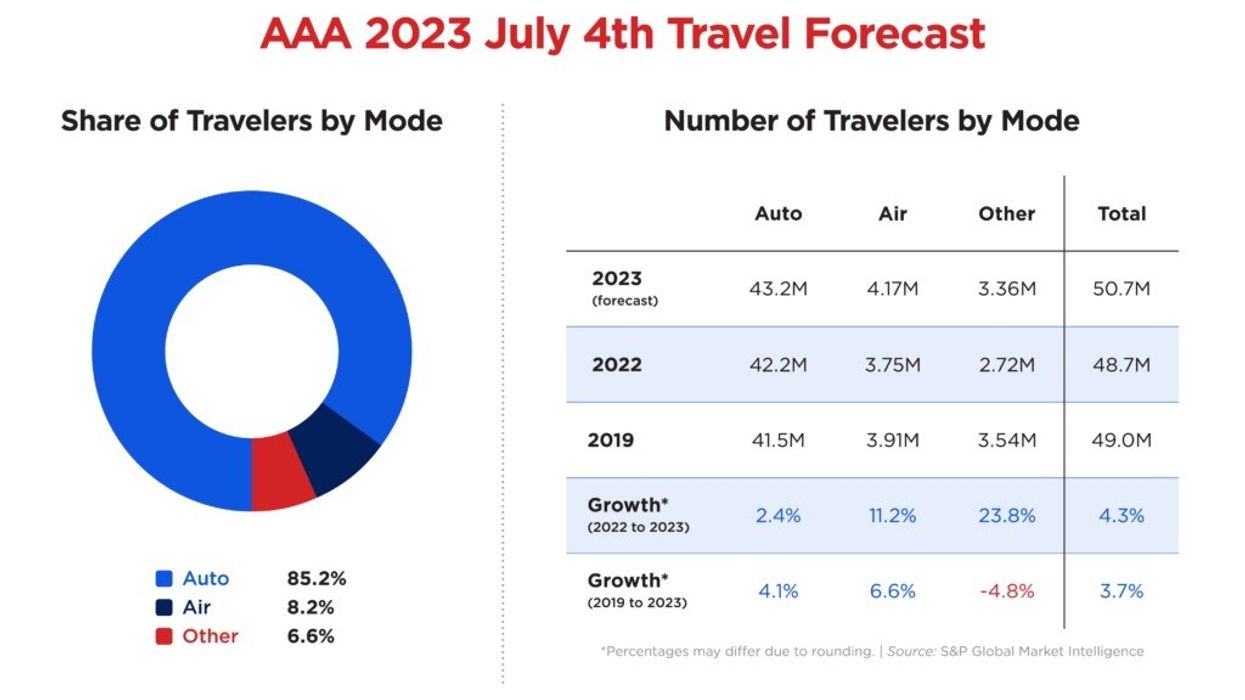AAA TRAVEL forecasted that a record-breaking 50.7 million Americans are expected to travel 50 miles or more from home this Independence Day weekend. Domestic travel during the long weekend will increase by 2.1 million compared to 2022, surpassing the previous record of 49 million travelers in 2019, AAA Travel said in a statement.
“We’ve never projected travel numbers this high for Independence Day weekend,” said Paula Twidale, senior vice president of AAA Travel. “What this tells us is that despite inventory being limited and some prices 50 percent higher, consumers are not cutting back on travel this summer. Many of them heeded our advice and booked early, another sign of strong travel demand.”
According to AAA Travel, Americans are also expected to break car travel records during this July 4th weekend. AAA forecasts a 2.4 percent increase in the number of people driving to their destinations compared to 2022 and a 4 percent increase compared to 2019, with a total of 43.2 million travelers. Additionally, gas prices have dropped significantly compared to last summer.
“In 2022, the national average for a gallon of regular was $4.80, while recently it has stayed steady around $3.50 to $3.60 per gallon nationally,” AAA said.
Meanwhile, air travel is poised to achieve a new record, with AAA projecting 4.17 million Americans flying to their destinations during the Independence Day weekend. This represents an 11.2 percent increase from 2022 and a 6.6 percent surge from 2019. The previous record of 3.91 million air travelers during the July 4th weekend was set in 2019. Air travelers account for an impressive 8.2 percent of the overall holiday forecast this year, marking the highest percentage in nearly two decades, AAA said.
Other modes of transportation are seeing an upward trend this year. AAA projects that 3.36 million individuals will travel by bus, cruise, or train during the long weekend, marking a 24 percent increase compared to last year. However, this number is not anticipated to surpass the total of 3.54 million travelers in 2019.
Summer travel patterns

According to AAA data, travel demand has steadily increased, and this summer is expected to set new records. Despite soaring ticket prices, air travel is also experiencing a surge in demand, with passengers willing to pay 40-50 percent more than last year. To accommodate this demand, airlines are increasing staff and replacing smaller regional planes with larger ones to enhance capacity.
However, a shortage of air traffic controllers is causing challenges, leading to reduced service at airports in the New York City area, AAA said.
Hotel prices have slightly increased compared to 2022, but not significantly. Domestic hotel bookings are steady, while international hotel bookings have surged by 80 percent, according to AAA data.






